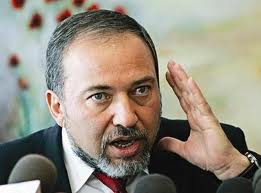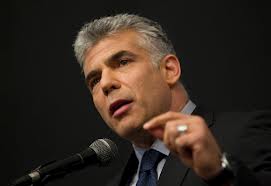 |
| Chief Rabbs Yitzhak Yosef and David Lau |
The rabbis and their supporters have had a busy week, filled with lots of newsworthy items.
Last Sunday, they were successful in rolling back a conversion initiative that was intended to make it easier for people to convert to Judaism in Israel. This was rolled back at the behest of the Shas and Degel HaTorah parties which are major partners in the current governing coalition. The rollback has widely been viewed as an effort to consolidate power over religious affairs in Israel back to the Ultra-Religious and away from the Zionist religious (i.e. the "modern Orthodox").
On Tuesday, a woman from Colorado, Linda Siegel Richman, was ordered to leave the Kotel (the "Western Wall) in Jerusalem because she was wearing a kippah (a skullcap or yarmulke). The Western Wall ushers told her that she did not belong and asked her to leave the area. She had come from the U.S. to study at the Conservative Yeshiva in Israel and was at the Kotel to pray and to place notes in the wall. The notes had been given to her by her students at a Denver school. The incident attracted enormous public attention. The next day, Western Wall Rabbi Shmuel Rabinovitch issued a half-hearted apology in which he noted that it was not clear that the incident had actually even occurred. Rabbi Rabinovitch has, of course, made concerted efforts over the past few years to prevent women from having access to Torah scrolls at the Kotel, from praying out loud and from wearing tallithot. So it is really no surprise that a woman wearing a kippah encountered such difficulties under his watch.
On Wednesday, the Israeli Minister for Religious Affairs, David Azoulai, (of the Shas party), lashed out at Reform Jews and stated that he did not even consider them to be Jews. He had other choice comments for Reform and Conservative Jews that were along the same lines. Prime Minister Netanyahu swiftly issued a condemnation of these remarks and called them "hurtful." Education Minster Naftali Bennett also condemned the remarks in no uncertain terms and stated that all Jews are Jews. Bennett went on to say the home for all Jews, including Reform and Conservative, is in Israel.
Is all of this related? Well, the current government includes 7 Shas members and 6 Degel HaTorah members as part of its 61 seat bloc, which gives the government the slimmest possible majority in the Knesset, facing 59 opposition Knesset members. Prime Minister Netanyahu paid an enormous price to enlist these Ultra-Religious parties into the governing coalition. Both parties were granted a range of powerful political portfolios as as significant policy and financial concessions.
This is in marked contrast to the previous government. After the 2013 Israeli elections, Yesh Atid leader Yair Lapid had won 19 seats. His party insisted that it would not join a government that would make so many concessions to to the Ultra-Religious parties. Lapid held out and an Israeli government was formed without the Ultra-Religious parties - for the first time in quite a while. As a result, the previous government began to make certain changes. These included mandatory military enlistment for the Ultra-Orthodox, reducing government grants for non-working Yeshiva students, ensuring that secular subjects like math and science are mandatory for everyone and numerous other changes. Many of these changes as well as other proposed changes that were in the pipeline were quite popular among secular and other non-ultra-Orthodox Israelis.
But when it came time to negotiate a coalition agreement this time around after the 2015 election, Prime Minister Netanyahu simply gave away everything. He agree to roll back all of the changes that had been made or proposed in the last government and to go beyond that by providing additional monetary incentives for the Ultra-Orthodox to join the government. The disappointing aspect of all of that is that Moshe Kahlon and his allegedly centrist Kulanu party simply agreed to all of these terms and conditions. This was in marked contrast to Yair Lapid in 2013 who had retained some principles during the previous round of coalition building negotiations.
As the Ultra-Religious establishment increases its power during the current mandate, many Israelis are becoming more and more disaffected with this turn of events. This will cause many Israeli voters to turn away from Kahlon and Netanyahu in the next election. Who will benefit? Bennett will be the winner among religious and more conservative voters and will take away some seats from Netanyahu and/or Kahlon on the right. But the big winner is likely to be Lapid. If he stays the course and continues to fight as an opposition member, Israelis will view him as one of the few principled politicians who is willing to stand up to the Ultra-Orthodox.
It is a fairly common viewpoint that the Labour party, Zionist Camp or other name that it might run under would be as willing as the Likud party to court the support of Shas and/or Degel HaTorah by making similar concessions in order to form a government. Only Yair Lapid and, perhaps, Tsipi Livni, have shown that they would be willing to hold out against these demands. It will be clear to Israeli voters that Kahlon will simply agree to anything in order to get a cabinet seat.
While there are many Israelis who simply do not care about many of these secular-religious issues or other issues of religious pluralism, more and more Israelis are starting to pay attention. Many Israelis are looking for alternatives to Orthodox weddings, which currently have a monopoly in Israel. Opening the door to civil marriage ceremonies could lead to widespread change and could also open the door to same sex marriages in Israel. Easing the conversion laws could benefit a large number of Israelis including thousands of immigrants whose religious status as Jews has been called into question. Still other Israelis would like to see public transportation on Shabbat, demonopolization of Kashrut authority, or more liberal laws in other areas affecting personal status.
The more that the current government acts in a fashion that is viewed as extremist, the greater the resentment will be among centrist Israelis. This may all lead to a large shift of voters from Kahlon and Netanyahu to Lapid and others.
The Shas and Degel HaTorah voters will not change. Those parties will continue to attract similar numbers in any given election. Their elected officials are doing a good job in advocating for policies that they support.
But the Israeli political landscape has a large number of undecided centrist voters who are mobile. These voters have swung around over the past number of years, from the Kadima party, to Tsipi Livni and Yair Lapid and now to Moshe Kahlon and Kulanu. Lapid and the Yesh Atid party make a strong case that the centrist voters should shift back to him and his party and that they are the only party that will stick to some principled positions on certain issues.
The current coalition is very tenuous. It is hanging on by a thread and Prime Minister Netanyahu's government even lost its first legislative vote this week, although that vote was not a "non-confidence" vote. We will probably see another election in Israel sooner rather than later. And if the current trend continues, Lapid and his Yesh Atid party are likely to be the big winners.











